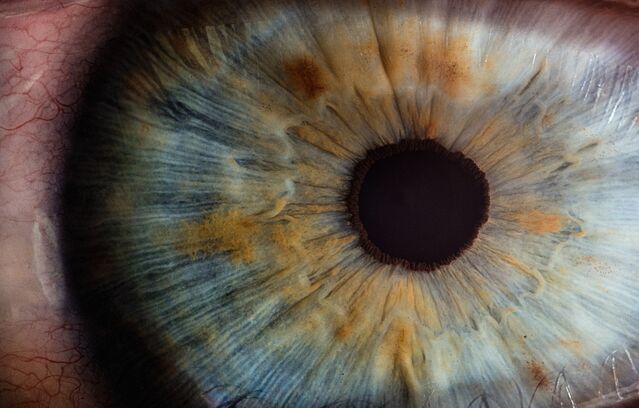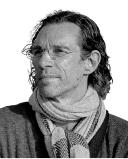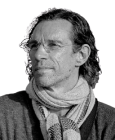Emotional Intelligence
The New Psychology of Embodied Emotional Intelligence
How our mind is connected to our body has a deep impact on what we are.
Posted June 9, 2022 Reviewed by Hara Estroff Marano
Key points
- Psychology is rooted in a long history of separating the mind from the body.
- What does it mean to be a self when the experience of a living body is removed from it?
- What it means to be a self is fundamentally connected with what it means to be alive.
- A psychology rooted in embodied emotional intelligence can emerge from the new perspective of being a self in a living body.
The Broken Perspective
In 1892 William James quoted the definition of psychology as:
“the description and explanation of states of consciousness as such.” (James 1985, p xxv)

Consciousness is the central theme of psychology. However, behaviorism and the cognitive sciences had virtually nothing to say about it until the end of the twentieth century. (Varela, Thompson & Rosch, 2016)
This has always seemed one of the strangest twists in the science of psychology. How could it be that for almost a hundred years subjectivity and human experience were neglected in the psychological sciences? What are the historical roots of this neglect? What caused this radical separation between cognitive processes and consciousness?
At the beginning of the Scientific Revolution, a deep divide between mind (res cogitans) and matter (res extensa) was maximally expressed in the seventeenth-century philosophy of René Descartes. Cartesian dualism long ago created an explanatory gap between mind and matter, between consciousness and nature. Consciousness and life, as part of nature, simply belonged to different realms.
At the beginning of the Scientific Revolution, there was still a deep fear for the Inquisition. Heresy and blasphemy led to the stake. So, perhaps it was the fear of the self of being disembodied that created the divide? The rational mind had to be protected from the mortal and sinful body. The worldly body with its desires and diseases was simply separated from the immortal mind. Life was placed in a different category.
The gap persisted in the science of consciousness and still persists in the myths and dogmas of many cultures. The deep divide between consciousness and nature had a profound impact on what it means to be a living self. The effect of this broken perspective was dramatic for the psychology of the twentieth century. Because what does it mean to be a self when the experience of a living body is removed from it? For what does it mean for the education of our emotional intelligence if our self with its emotions—which need attention—is separated from the mind that need to be filled with knowledge?
Consciousness Matters
Today, the life sciences are showing us a completely different perspective on what we are. A completely new story is unfolding, based on deep and careful observations, outlining a deep continuity and connection between our body and our mind. This new perspective shows more and more undeniable proof of the unbreakable interaction between the evolution of life and the emerging of a mind with consciousness. (Damasio, 2021)
Body and mind have been separated for too long. Deep psychological wounds in our emotional flesh have been made because of that separation. Decades of careful observations now render it almost unquestionable that self-perception and embodiment are intimately connected. A self that splits off from this earthly truth disrupts its possibility for embodied emotional intelligence.
A new perspective on our self-perception and new research in the science of the self reveal some clear insights. Anil Seth, a leading British researcher in the field of consciousness science states:
“We do not perceive ourselves in order to know ourselves, we perceive ourselves in order to control ourselves.” (Seth, 2021, p 170)
Our self is the result of an ongoing interaction process between top-down predictions and bottom-up perceptions in order to regulate and control our bodies. In his new science of consciousness Seth reveals how:
“Our conscious experiences of the world around us, and of ourselves within it, happen with, through, and because of our living bodies.” (Seth, 2021, p 174)
Our self is a deeply embodied perception. This means that if we can learn to observe how our habitual thought patterns are separating our self from our living body, we discover a deeply self-disruptive action. This separating action is the cause of much pain and feeling unfulfilled.
The Perspective of Being a Self in a Living Body
According to the new science of consciousness, our self-perception is a predictive, embodied process. This offers us some challenging questions. What does it mean to be a self in a living body:
• When our habitual thought patterns permanently construct non-existing boundaries and separating gaps between ourselves and our living body?
• When those constructed borders and divisions dominate and control our education and emotional life?
• When those mental fabrications become the delusions and dogmas of our culture?
Educational systems and work organizations can no longer continue to separate our consciousness from our living bodies. The psychology of the future must be based on the description and explanation of states of consciousness as such—deeply rooted in a body. Human experience is the expressed meaning of being a self in a living body.
Promising perspectives can emerge from this new intimacy between living and knowing. The old model of the broken perspective can softly die: No living body means no mind, no self, no consciousness, no knowing. A new embodied emotional intelligence can grow gently, deeply connected with life.
References
Damasio, A (2021). Feeling & Knowing. Making Minds Conscious. New York, Pantheon Books.
Seth, A. (2021). Being You. A New Science of Consciousness. London, Faber & Faber Ltd.
Varela, F.J., Thompson, E., Rosch, E. (2016). The Embodied Mind. Cognitive Science and Human Experience. Cambridge MA, MIT Press.
James, W. (1985). Psychology: The Briefer Course. Notre Dame, IN: University of Notre Dame Press




